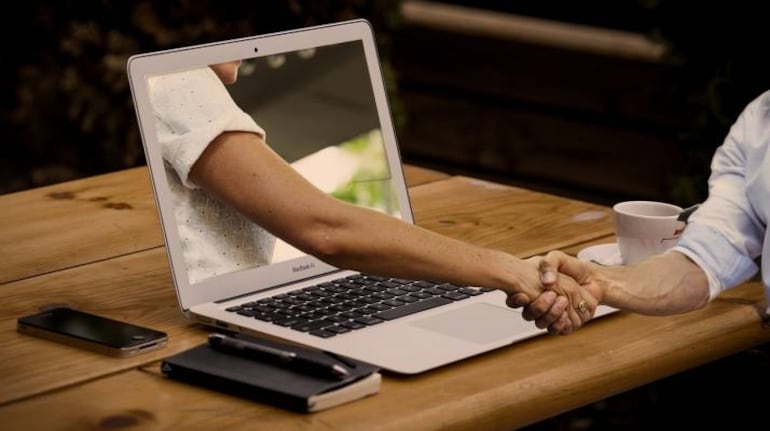



Of late, many depositors of public sector banks have been complaining of delays and service disruptions in regular transactions. Delays in clearing cheques, interruptions in internet banking and failures in transactions done through mobile-banking are common complaints. Here’s what has been happening.
Some of these banks have been upgrading their systems after mergers. And many such mergers have happened in the last two years. On April 1, 2019 Vijaya Bank and Dena Bank have been amalgamated with Bank of Baroda (BOB). Similarly, this year, on April 1, 2020 Corporation Bank and Andhra Bank were merged with Union Bank of India.
In order to improve customer experience, Bank of Baroda and Union Bank of India are in the midst of upgrading and integrating their banking systems. For instance, Bank of Baroda has sent out text messages and emails to all the erstwhile Dena Bank customers sating that their core banking systems would be upgraded by December 12. Similarly, Corporation Bank has announced that, from December 1, 2020, all the branches of the bank have been fully integrated with Union Bank of India’s and that systems are being upgraded.
What should customers watch out for when banks merge? How will processes differ?
Will my account number, IFSC and MICR codes change?
Let’s illustrate with an example. In case you hold an account with Corporation Bank, then your account number and customer identification number will not change after data migration to Union Bank of India. However, the IFSC and MICR codes of your Corporation bank branch will change. All the transactions through NEFT, RTGS, ECS, NACH, etc. with the current IFSC and MICR Codes will continue to be honoured until March 31, 2021.
In case you have an account with Dena Bank, then your account number, IFSC and MICR codes will change after data migration to Bank of Baroda. You will be given a new account number, customer ID, IFSC and MICR code. “These details will be shared with the customers through a separate communication or can be collected from their bank branch at their convenience,” says an email communication to bank customers from M K Chary, Head of Integration Management Office, Bank of Baroda.
Alternatively, you can get your new BOB account number, MICR and IFSC code by sending an SMS or by visiting the amalgamation tab on the Bank of Baroda website. The bank will send you your new account number, IFSC and MICR CODE via SMS. You can check your new account details after December 12.
Also read: 7 steps a customer should take as government merges PSU banks
How do I update standing instructions with the new IFSC?
If you have been investing in a mutual fund through a systematic investment plan from your bank account or paying utility bills through electronic clearing service (ECS), or servicing your equated monthly instalment (EMI), then you need to update your IFSC and MICR codes. You can do this before March 31, 2021.
Senior citizens receiving pension in the accounts of the erstwhile and merged banks should be extra careful. Till March 31, 2021, your account will get credited with the pension income. But after that, it’s important that you get your new account details updated with your former employer. You might have to re-register the pension-giving firm with your bank. The IFSC codes on your existing bank accounts – if already merged with another bank – will be discontinued from April 1, 2021.
Will there be any change to my existing debit and credit cards, and the associated PIN numbers?
No, your current debit and/or credit card issued by the merged banks will continue to remain valid until expiry of the cards and you may continue to use them. Your PIN number also remains the same.
Will there be any change to internet and mobile banking facilities?
If you hold an account with Corporation Bank, then you will not able to use Corporation Bank’s CorpNet internet banking platform. You will have to use Union Bank of India’s internet banking portal, which can be accessed on www.unionbankonline.co.in. Your login credential will remain the same. For mobile banking, you will have to download Union Bank of India’s UMobile Application. You will be required to re-register for mobile banking facility with the existing debit card you hold.
Similarly, if you are holding an account with Dena Bank then you will not able to use Dena Bank’s internet banking platform. You will have to login on www.bobibanking.com for internet banking facility. Your User ID and password will remain the same. For mobile banking, you will have to download the M-connect Plus mobile app of Bank of Baroda.
What will happen to my bank accounts and fixed deposits?
Your account in Dena Bank will have a new account number upon data migration of your branch. You will also receive a new customer ID for your new account. But if you also have a bank account with Bank of Baroda, “it is advisable to merge the two customer IDs which will allow you easy access to all your accounts,” says Chary. These will ensure that all accounts are visible on your net banking. Talk to your bank representative.
Your existing fixed deposits and recurring deposits will continue as they are until maturity.
Post-migration, will there be any change in service charges or interest rates?
No. Service charges and interest rates will not be changed post-migration of the banks.
Discover the latest Business News, Sensex, and Nifty updates. Obtain Personal Finance insights, tax queries, and expert opinions on Moneycontrol or download the Moneycontrol App to stay updated!
Find the best of Al News in one place, specially curated for you every weekend.
Stay on top of the latest tech trends and biggest startup news.